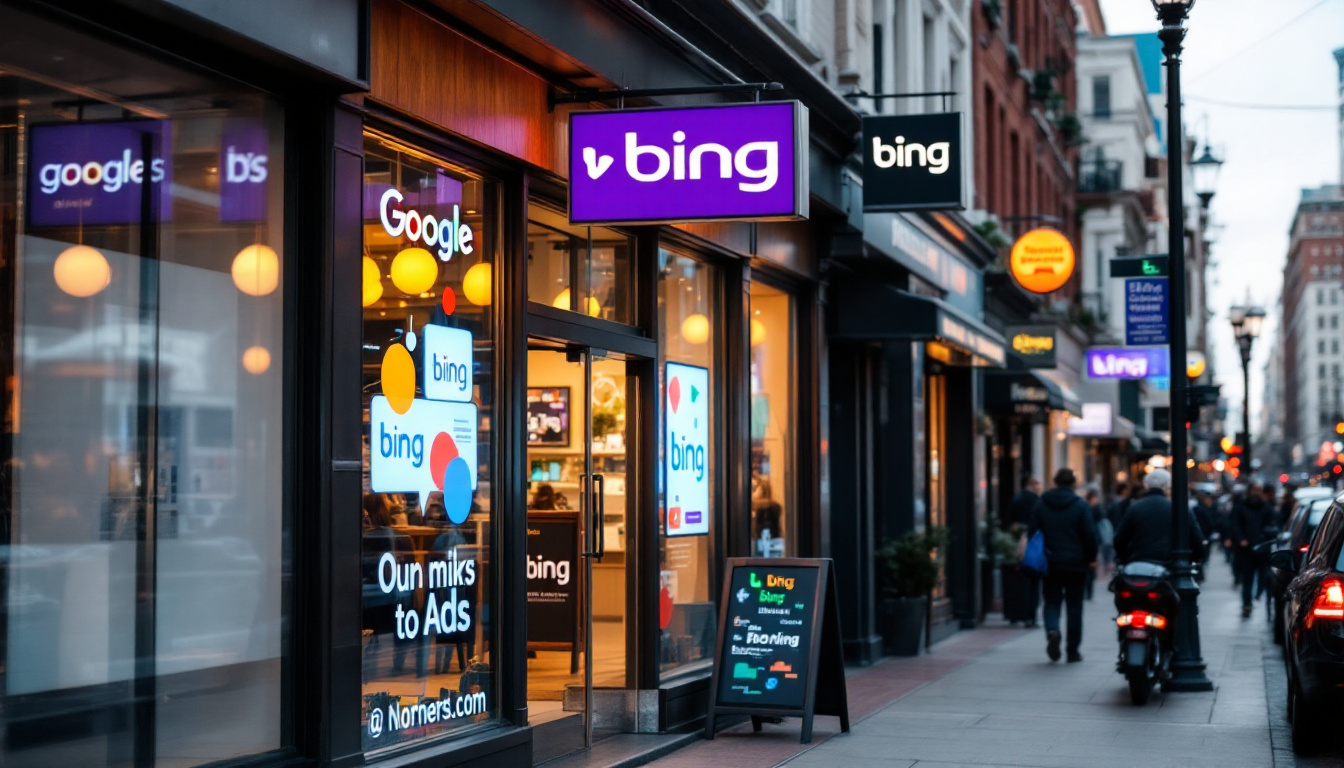10 Things Every Washington, DC Business Should Know About PPC

Pay-per-click (PPC) advertising has become an essential element of digital marketing, especially for businesses operating in bustling areas like Washington, DC. With a diverse market and unique consumer behaviors, understanding the nuanced aspects of PPC can significantly impact your business growth. Here are ten essential insights that every Washington, DC business should know about PPC.
Why PPC is Essential for Washington, DC Businesses
PPC advertising allows businesses in Washington, DC to swiftly reach a broader audience. Given the city's status as a political and cultural hub, businesses can leverage PPC to target both locals and tourists effectively. With platforms like Google Ads, businesses can showcase their services precisely when potential customers search for related terms.
The immediacy of PPC is another key advantage. Unlike organic search engine optimization, which can take months to yield results, PPC can generate instant traffic. For businesses in competitive sectors, this speed can be crucial in gaining visibility and capturing leads before competitors do.
Targeting Local Audience
In Washington, DC, local targeting is particularly beneficial. Businesses can utilize geolocation features to ensure their ads only appear to users in specific neighborhoods or even within certain proximity to their locations. This targeted approach increases the likelihood of conversions as the ads reach individuals more likely to engage.
Moreover, the city presents unique demographics that may require tailored messaging. Using PPC, Washington, DC businesses can cater their advertisements to resonate with specific audience segments, enhancing engagement and ROI. For instance, a restaurant near the National Mall can create ads that highlight special offers during tourist seasons, while a law firm can focus on local legal needs, ensuring that their messaging aligns with the interests and needs of their target audience.
Cost Efficiency
PPC can be cost-effective when executed correctly. It operates on an auction system where businesses set a maximum bid for clicks. This framework allows even small businesses to compete with larger players. The ability to monitor and adjust bids based on performance metrics can significantly enhance your advertising spend efficiency.
Furthermore, PPC campaigns are measurable. Businesses can analyze metrics such as click-through rates (CTR) and conversion rates, enabling the fine-tuning of campaigns to reduce wasted spending. This data-driven approach not only helps in optimizing current campaigns but also provides valuable insights for future marketing strategies. For example, by understanding which keywords drive the most traffic, a business can allocate more budget towards those terms or explore related keywords that may yield similar results, ultimately maximizing their advertising impact.
Common Misconceptions About PPC
Despite its advantages, many Washington, DC businesses harbor misconceptions about PPC that may deter them from investing. One common myth is that PPC is only beneficial for large enterprises with extensive budgets. In reality, small to medium-sized businesses can start with modest budgets and gradually scale as they observe results. This flexibility allows businesses to test different strategies and keywords without committing to a large financial outlay upfront. Additionally, platforms like Google Ads offer various bidding strategies that can help businesses maximize their return on investment, making it easier for them to compete in crowded markets.

Another misconception is that PPC guarantees immediate success. While visibility can increase quickly, conversion depends on several factors, including website quality, user experience, and ad relevance. An effective PPC strategy involves continuous optimization and adjustment. This means regularly analyzing performance metrics, adjusting bids, and refining ad copy to better resonate with the target audience. Businesses that invest time in understanding their analytics can significantly enhance their campaigns, leading to improved conversion rates over time.
PPC Equals SEO
Some businesses mistakenly believe that PPC can replace search engine optimization (SEO). While both strategies aim to increase visibility, they operate differently. PPC delivers immediate traffic but ceases to function once the budget runs out. In contrast, SEO builds long-term organic traffic and brand credibility. For optimal results, businesses should integrate both strategies into their marketing plans. By combining PPC and SEO, companies can create a comprehensive digital marketing strategy that not only drives immediate results but also establishes a strong online presence over time.
Moreover, PPC can provide valuable insights into customer behavior that can inform SEO efforts. For instance, the data gathered from PPC campaigns can reveal which keywords and ad copy resonate most with potential customers, allowing businesses to refine their SEO strategy accordingly. This symbiotic relationship between PPC and SEO can lead to a more effective marketing approach, ensuring that businesses not only attract traffic but also convert visitors into loyal customers. Understanding this interplay can empower businesses to leverage both tactics to their advantage, ultimately leading to a more robust online presence.
How to Allocate Your PPC Budget Effectively
Budget allocation is crucial for the success of any PPC campaign. Washington, DC businesses should start by defining clear objectives. Do you want to increase brand awareness, generate leads, or encourage direct sales? Each goal may require different budget allocations. For instance, if your primary aim is to boost brand awareness, you might consider allocating a larger portion of your budget to display ads that reach a wider audience. Conversely, if lead generation is your focus, you might prioritize search ads that target users actively seeking your services.

Next, conduct thorough keyword research to determine which terms yield the best return on investment. Allocate funds based on the competitiveness and relevance of the keywords. Consider utilizing tools like the Google Keyword Planner to gauge search volume and cost-per-click (CPC). Additionally, don’t overlook the importance of long-tail keywords, which often have lower competition and can lead to higher conversion rates. These specific phrases can attract more targeted traffic, making them a cost-effective option for your PPC strategy.
Monitor and Adjust
It is also essential to regularly monitor campaign performance. Use analytics tools to evaluate how much of your budget is converting into sales. If certain ads or keywords are underperforming, reallocate funds to higher-performing segments. This fluid approach ensures that every dollar spent is contributing to your marketing goals. Furthermore, consider setting up A/B testing for your ads to understand which variations resonate best with your audience. This method not only helps in refining your messaging but also provides insights into the types of visuals and calls-to-action that drive engagement.
Another key aspect of effective budget allocation is understanding the seasonal trends that may impact your industry. For example, if your business experiences a surge in demand during the holiday season, it would be wise to increase your PPC budget in advance of that period. By anticipating these fluctuations, you can maximize your visibility when it matters most. Additionally, keeping an eye on competitors’ strategies can provide valuable insights into potential areas for adjustment, allowing you to stay ahead in a competitive landscape.
The Role of Keywords in PPC Success
Keywords are at the heart of any successful PPC campaign. Selecting the right keywords enables your ads to appear in relevant searches, driving qualified traffic to your website. For Washington, DC businesses, it's vital to choose keywords that align with local interests and needs. Understanding the local culture, events, and demographics can significantly enhance your keyword strategy. For example, incorporating keywords related to local landmarks or popular events can make your ads more appealing to residents and visitors alike, ensuring that your message resonates with the audience you want to reach.
Long-tail keywords, which are more specific phrases, can often lead to higher conversion rates. For instance, instead of targeting "restaurants," focusing on "best vegan restaurants in Washington, DC" can connect you with an audience already inclined to convert. These specific phrases not only reduce competition but also attract users who are further along in the buying cycle. Moreover, analyzing search trends and consumer behavior in your area can help you uncover additional long-tail keywords that may not be immediately obvious, giving you a competitive edge in your PPC campaigns.
Negative Keywords
Utilizing negative keywords is another strategy for improving PPC effectiveness. Negative keywords prevent your ads from showing up in irrelevant searches, which helps in refining targeting and increasing your budget's efficiency. For example, if you run a premium service, you might want to exclude terms like "cheap" or "discount." This practice not only saves your budget but also enhances the quality of your leads, as your ads will be shown to users who are genuinely interested in what you offer. Regularly reviewing and updating your negative keyword list is essential, as trends can shift and new irrelevant search terms may emerge over time.
Additionally, employing tools like Google Ads' Keyword Planner can assist in identifying both positive and negative keywords effectively. This tool provides insights into search volume, competition, and related queries, allowing you to make informed decisions about your keyword strategy. By continuously optimizing your keyword selection and refining your ad targeting, you can maximize your PPC campaign's performance, ensuring that your marketing efforts yield the best possible return on investment. Remember, the landscape of digital advertising is ever-evolving, so staying proactive in your keyword management is key to long-term success.
How PPC Fits into Your Overall Marketing Strategy
PPC should not be an isolated marketing tactic but rather a component of a comprehensive marketing strategy. When integrated effectively, PPC advertising can support and enhance efforts in areas like SEO, social media marketing, and content marketing.
For instance, insights gained from analyzing PPC campaign performance, such as user behavior or keywords that resonate well, can inform SEO strategies and content creation. Similarly, well-performing ad copy can guide messaging in other channels.
Cross-Channel Promotions
Leveraging PPC in conjunction with other channels can create a cohesive marketing experience. Promotional campaigns can be synchronized across email marketing, social media, and PPC, effectively increasing brand exposure and consumer engagement.
Ultimately, businesses operating in Washington, DC should view PPC as a flexible and dynamic tool within a broader marketing framework. When executed with strategic awareness, it can lead to substantial growth and profitability.

As a Google Ads expert, I bring proven expertise in optimizing advertising campaigns to maximize ROI.
I specialize in sharing advanced strategies and targeted tips to refine Google Ads campaign management.
Committed to staying ahead of the latest trends and algorithms, I ensure that my clients receive cutting-edge solutions.
My passion for digital marketing and my ability to interpret data for strategic insights enable me to offer high-level consulting that aims to exceed expectations.









